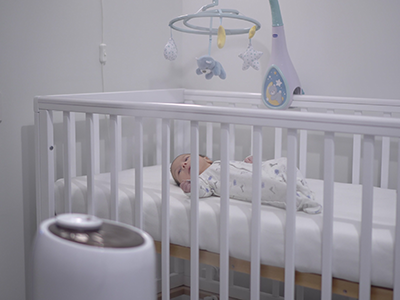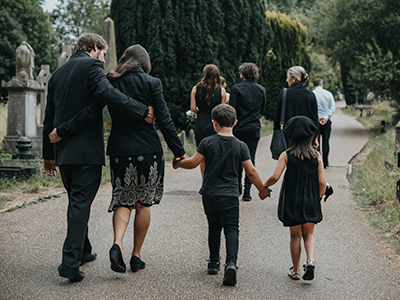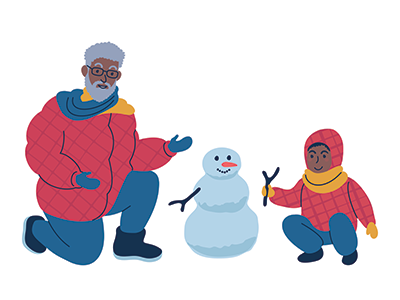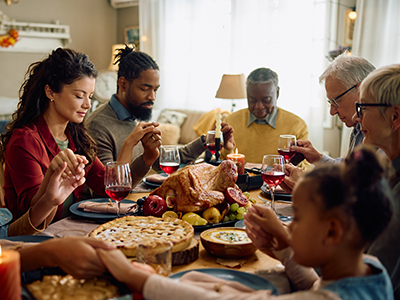Losing a loved one is a heartbreaking experience for everyone, but for children, it can be especially confusing and frightening. Funerals, traditionally meant to honor the deceased and offer comfort to mourners, can be overwhelming for young minds. However, with a little preparation and open communication, you can help your child navigate this emotional time.
Honest conversation is key
When talking to your child about death, use clear and honest explanations. Avoid euphemisms like “sleeping” which can be confusing for children. Tailor your explanation to their age and understanding. For younger children, you can say that the person’s body stopped working and they won’t be coming back. Be honest but gentle.
Open the door to their feelings
Encourage your child to talk about their feelings and fears surrounding death. This includes worries about their own mortality or the loss of other loved ones. Listen patiently and answer their questions in an honest and age-appropriate way. While our first instinct may be to reassure them that everything will be fine, these are false reassurances. Instead, remind them that they are loved and cared for, and that you will always be there for them.
Include them in the process
When discussing the funeral arrangements, ask your child if they’d like to be involved. There’s a difference between asking them to attend and forcing them. Give them the option to stay with a trusted adult if they’re uncomfortable attending the service. Describing death with metaphors can be confusing. Skip sayings like “gone to greener pastures” and stick to clear language.
Preparing for the funeral
If your child chooses to attend the funeral, prepare them for what to expect. Explain that there might be crying, singing and speeches. It’s also important to be upfront about the possibility of seeing the deceased in an open casket. Let them know it’s okay if they feel overwhelmed and need a break. Younger children may not be able to sit through a lengthy service. Consider attending the reception instead.
Offering comfort and support
During the funeral, ensure your child doesn’t feel isolated. Hold their hand, let them bring a favorite stuffed animal, or offer them hugs. The main purpose of their attendance is to say goodbye. Encourage them to participate in a meaningful way, like drawing a picture or writing a letter for the deceased.
Remember, knowledge is power
Preparing your child for the funeral doesn’t have to be scary. By talking openly, respecting their boundaries, and offering them ways to participate, you can help them navigate this emotional time and begin the process of healing. There are also many resources available to support you and your family during this difficult time.
 https://riseandshine.childrensnational.org/wp-content/uploads/2024/04/baby-sleeping-in-crib-feature.png
300
400
Danielle Robbins
https://riseandshine.childrensnational.org/wp-content/uploads/2017/11/childrens_riseandshine_logo.jpg
Danielle Robbins2024-04-19 10:54:482024-04-22 11:13:49The truth about baby sound machines and hearing loss
https://riseandshine.childrensnational.org/wp-content/uploads/2024/04/baby-sleeping-in-crib-feature.png
300
400
Danielle Robbins
https://riseandshine.childrensnational.org/wp-content/uploads/2017/11/childrens_riseandshine_logo.jpg
Danielle Robbins2024-04-19 10:54:482024-04-22 11:13:49The truth about baby sound machines and hearing loss










Leave a Comment
Want to join the discussion?Feel free to contribute!